In Kurdistan, symptoms like a lump or persistent pain are often shrouded in silence. But for Ahang Kawany, a lump in her breast was not something to hide; it was a call to action. Like Srwa Osman, a poet who faced cancer not once, but three times, Kawany chose defiance.
Osman and Kawany are part of a growing movement, a force of Kurdish women turning personal battles into communal action, shattering stigmas and empowering others to fight for their lives. Kawany, an entrepreneur, focuses on early detection and open conversations, while Osman uses her poetry and personal experiences to encourage resilience.
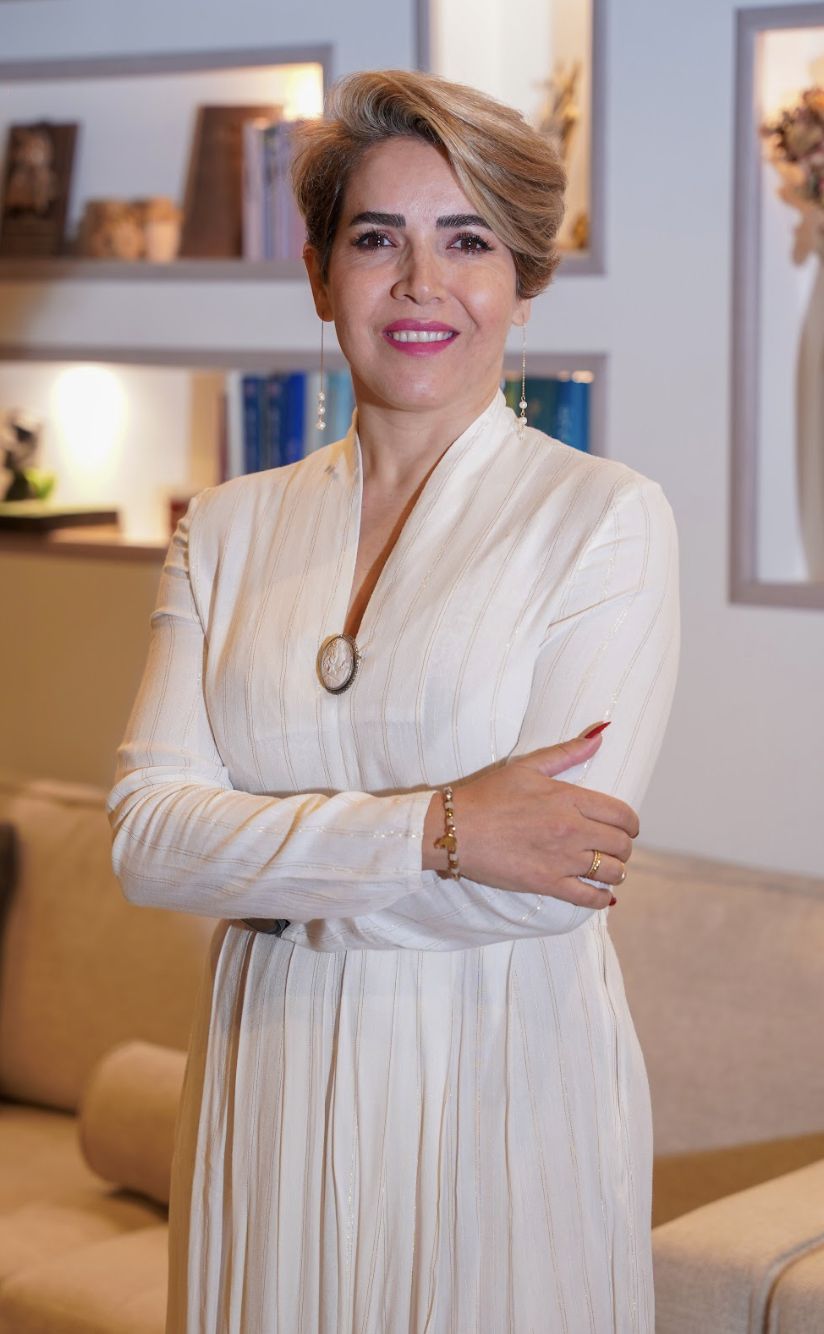
Ahang Kawany
In 2023, Kawany, a 44-year-old entrepreneur and cancer advocate, discovered a lump in her breast. “The worst thing is that it could be cancer,” she says. “I was prepared to fight.”
That resilience stems, in part, from a previous health scare. A decade earlier, at the age of 30, Kawany experienced numbness on the right side of her body. Doctors discovered a brain tumor. Thankfully, it was benign. But the experience left a lasting impression, compelling her to learn as much as she could about cancer.
So, when the 2023 diagnosis came, she was ready, beginning treatment immediately. Alongside the medical interventions, she drew strength from her family and friends. Their firm belief in her ability to overcome the disease became her bedrock.
Among her inspirations was a friend, Della Murad, a Kurdish image consultant and fashion designer who had battled cancer not once, but twice. “Della was my role model,” Kawany says with admiration. “I told myself I needed to be brave like her.”
Now fully recovered, Kawany has regular three-month checkups to monitor for any recurrence of cancer cells for at least five years.
Kawany sees her experience as a call to action for other women facing similar challenges. “If I can convince just one woman facing cancer to be brave and not give up on life, that will be a great achievement.”
She emphasizes the importance of early detection and self-exams in a region where cultural stigmas and a lack of awareness can delay crucial diagnoses. “Early detection,” she says, “can be the key to avoiding chemotherapy.”
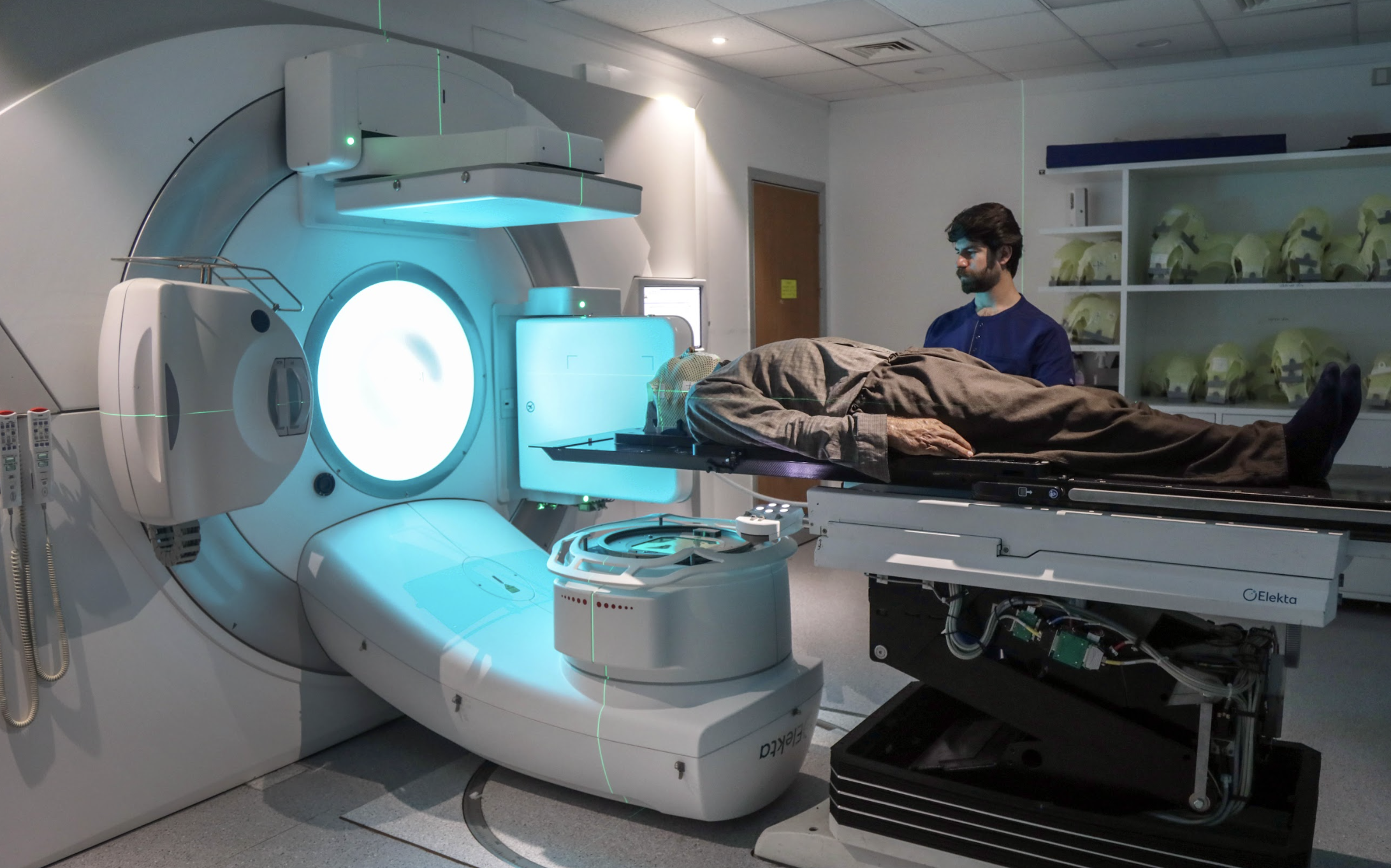
Her advice is simple but powerful: “Check yourself regularly. By doing so, you serve yourself tremendously. And don’t be afraid if you find you have cancer.”
Kawany regularly visits universities and high schools for girls, sharing vital information about health and breast cancer awareness. She encourages young women to speak openly with their parents about any changes they notice in their bodies. “Girls should not be afraid to tell their parents if they see a problem,” she stresses.
She recounts a particularly moving experience at one school, where students confided their fears about discussing bodily changes with their parents. “They said their parents might blame them for any problems,” Kawany recalls. “It’s so important for parents, especially fathers, to completely support their daughters. They need to know they have their full support.”
She credits her father’s lifelong support as a source of her confidence and resilience.
Kawany runs several guest houses in the touristic town of Shaqlawa, beneath Safeen Mountain, using the business to fund her cancer awareness projects. She emphasizes the importance of connecting with nature. “Nature is a cure for sickness,” she says. “When I’m hiking, I completely forget about my sickness.”
Her story has since been documented in a 30-minute film, showcasing her resilience and optimism. Screened several times, it portrays her as a role model, inspiring others with her determination to fight cancer and embrace life.
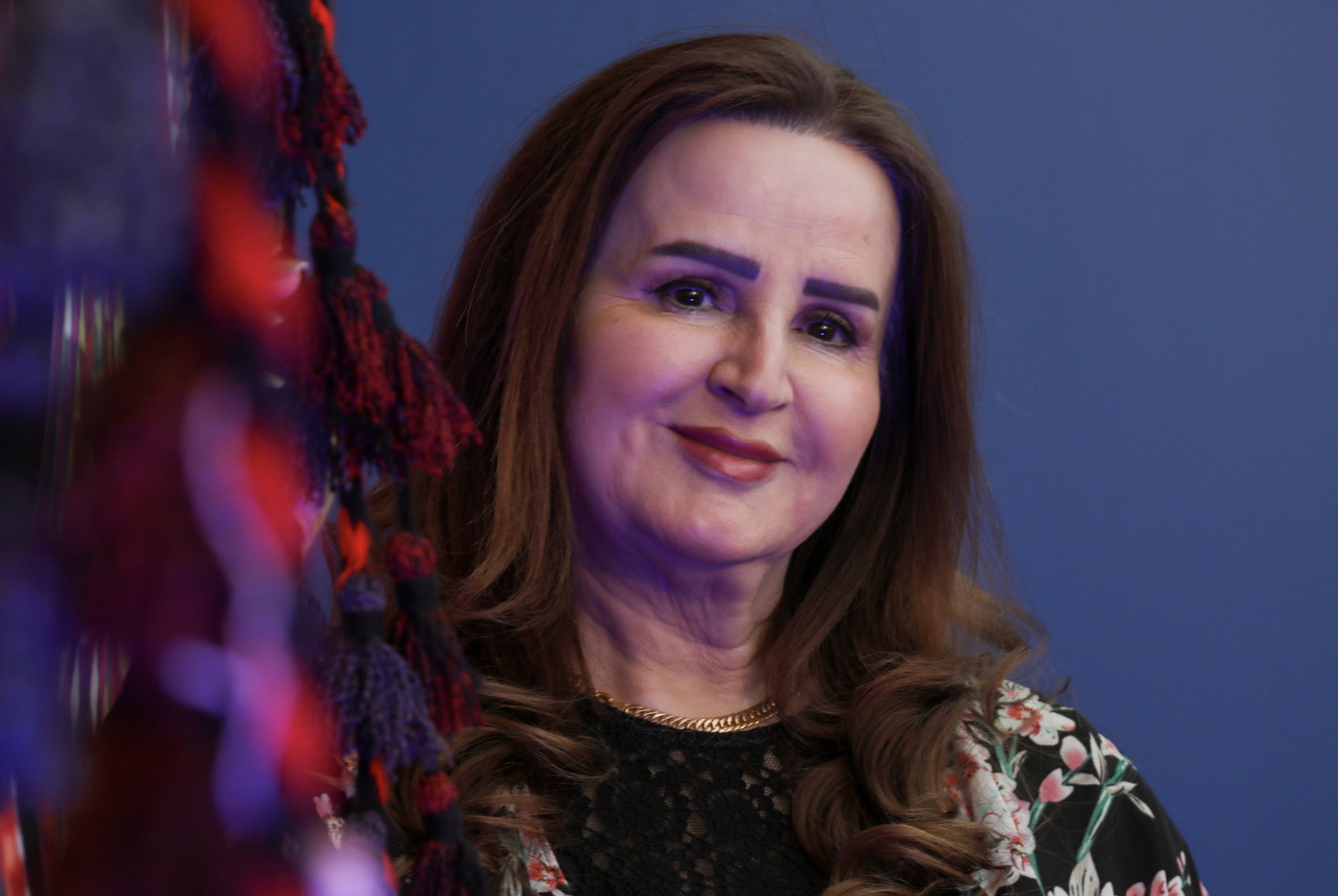
Srwa Osman
Srwa Osman, a 59-year-old high school teacher, also understands the power of sharing her story. Diagnosed with cancer three times over the past decade – breast cancer in 2009, cervical cancer in 2012, and stomach cancer in 2019 – Osman has faced death and emerged each time with renewed purpose.
“When I first received the news, it was a shock,” Osman admits, recalling her initial diagnosis of breast cancer at the age of 44. “My son was still a child. I told myself, ‘I have to live because my son needs me.’”
She remembers a time when Kurdistan’s healthcare system was less developed. “In 2009, I had to travel to Jordan and then Germany for treatment.” Her younger brother in Hanover played a crucial role, taking her tests to German doctors. Osman was also among the first to receive a German visa when the consulate opened that year, marking the start of regular trips for treatment.
Osman was invited to speak at Nanakali Hospital in Erbil, a facility dedicated to treating patients with cancer, leukemia, and hemophilia. She shared a powerful message of resilience in the face of adversity at an event organized by Davin Organization, a Kurdistan-based nonprofit working to empower vulnerable populations. The organization addresses the pervasive belief that a cancer diagnosis is a death sentence.
At the event, Osman’s words moved her audience. She recited poems shaped by her experiences, painting a vivid portrait of pain, hope, and courage. Her resilience is exemplified here in one of her poems:
You were a ghost
In my heart and soul
You blazed like a hurricane
There was no subduing you
No mercy... no compassion
You brutally destroyed me.
...
But a thousand, thousand sighs of relief,
I lit a candle,
With it, I chased away much darkness,
With it, I warmed the embers of my hope,
With the spear of my sunbeam hand,
With it, I pierced the darkest night.
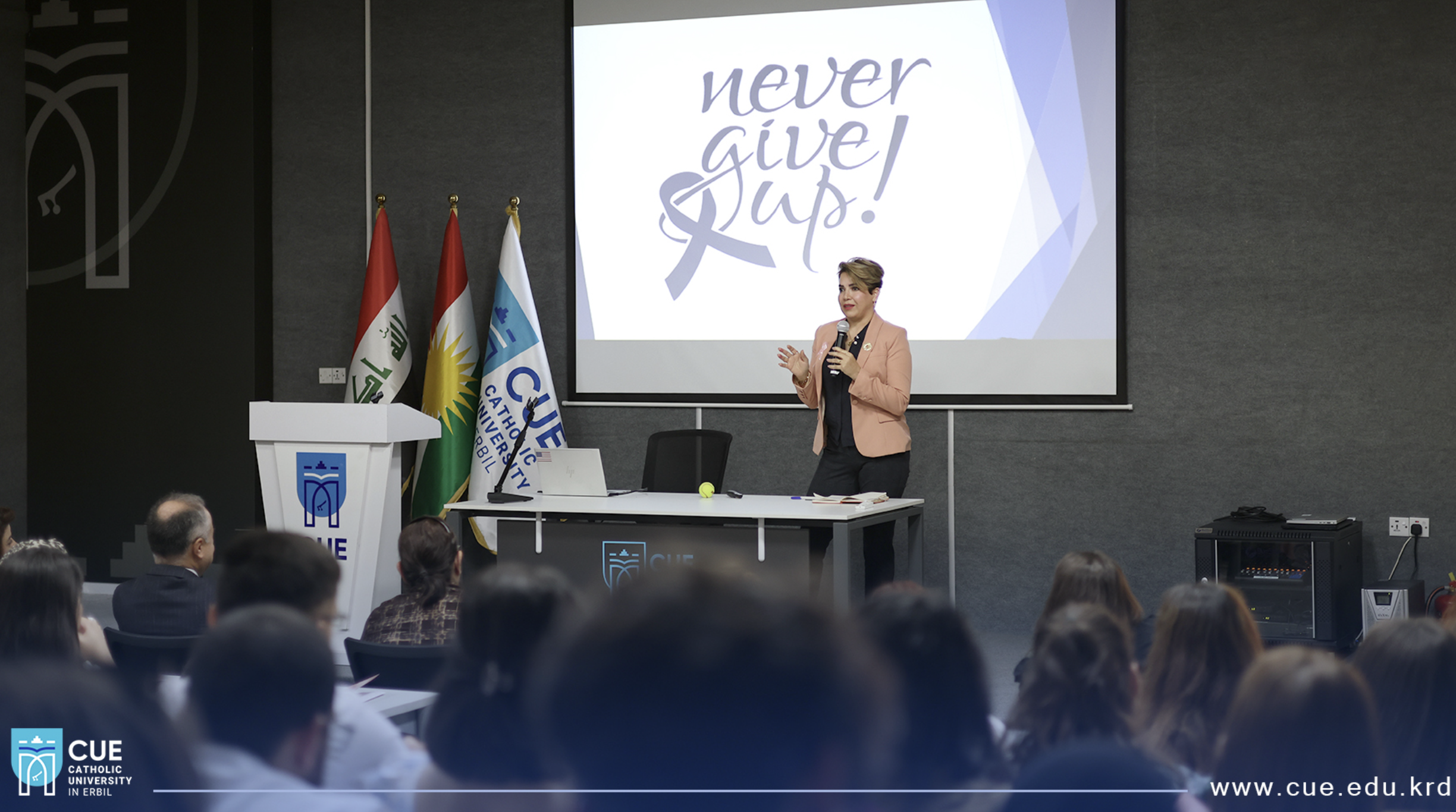
When a 13-year-old girl bravely shared her own cancer survival story, tears streamed down her face. Osman immediately embraced her, whispering, “Don’t cry, you are a hero. You are a survivor.”
Osman refused to let cancer define her, continuing to teach, exercise, and socialize. “I didn’t want to stay at home as a sick person. I tried as much as I could to live my life.”
Now, she is a passionate cancer advocate, regularly visiting patients and bringing flowers and a powerful message: “Don’t think of yourselves as sick. Think of yourselves as people receiving treatment.”
Surviving cancer, she insists, gives life new meaning: “You love life more. You want to travel and become more adventurous.”
Beyond hospital visits, Osman holds seminars and participates in conferences, raising awareness and advocating for better support. Her message to families is clear: “Don’t look at cancer patients with pity. Support them, inspire them.”
Through her social media presence and evocative poetry, she continues to share her journey and offer solace, reminding everyone that even in the darkest of times, light can be found.
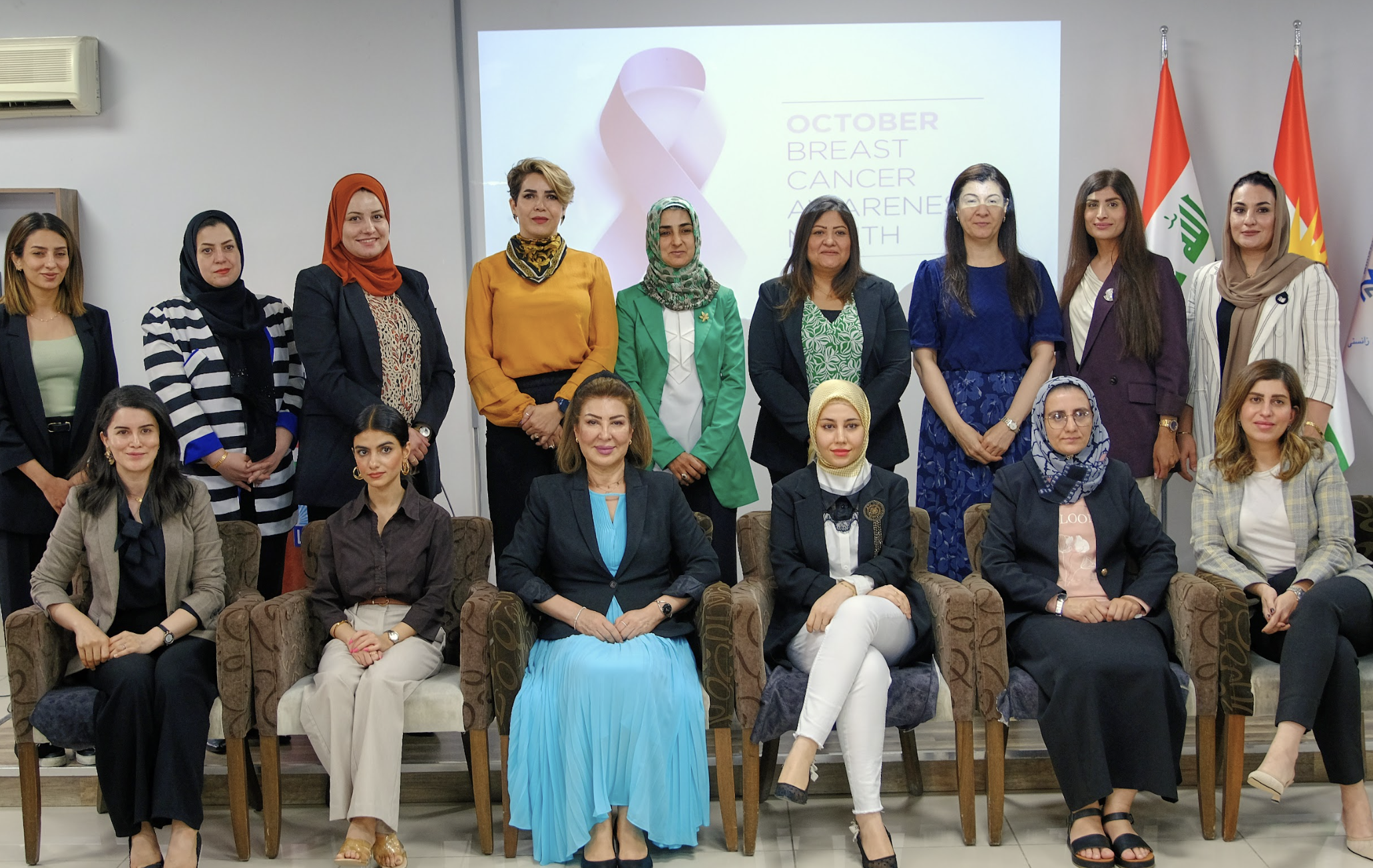
Mental health support
At Nanakali Hospital, the fight against cancer extends beyond medical treatments. It is a battle against fear, isolation, and the pervasive belief that a cancer diagnosis is a death sentence.
Rwan Abdulmajid, a 39-year-old psychologist at Nanakali and a key member of the Davin team, provides crucial mental health support to cancer patients, focusing on creating a positive mindset. “My goal is to help them think positively,” she says.
A cornerstone of her approach is connecting current patients with cancer survivors like Kawany and Osman. By sharing their experiences, survivors provide invaluable strength and inspiration. Abdulmajid also utilizes visual aids, showing patients videos and films of others who have triumphed over cancer to boost their morale. “Suddenly,” she observes, “we see changes in their behavior. They start to become more lively.”
But Abdulmajid’s support extends beyond the patients themselves. Recognizing the immense emotional toll cancer takes on families, she helps prepare them for the challenges ahead and providing them with the necessary emotional support.
These women are transforming fear into knowledge and silence into strength in Kurdistan. They are not just battling cancer; they are building a future where fear gives way to knowledge, and silence is replaced by the strong voice of hope.
Qassim Khidhir has 15 years of experience in journalism and media development in Iraq. He has contributed to both local and international media outlets.

